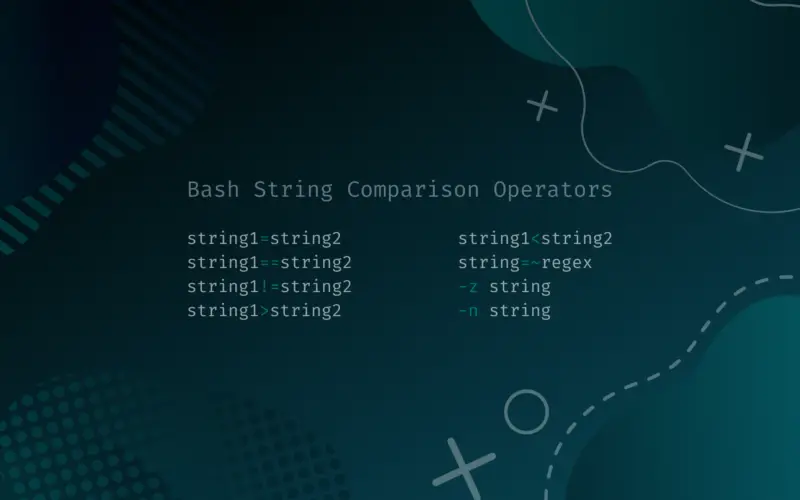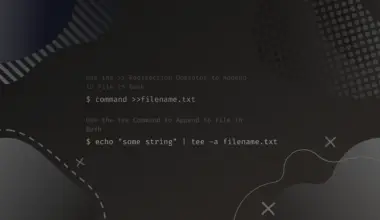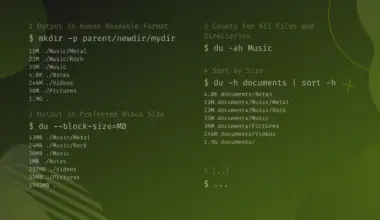Similar to other programming languages, strings in bash is the datatype that holds a sequence of characters.
In this tutorial, you will learn how to compare the bash strings using the various comparison operators discussed below.
Table of Contents
Firstly, let’s see an example of creating and running a bash script.
Create a file testscript.sh and write the following codes in the file.
#!/bin/bash greetings="namaste" echo $greetings
namaste
Bash String Comparison Operators
This section describes the various comparison operators used to compare bash strings. The result of the comparison is either true or false.
string1=string2: The single equals operator,<strong>=, checks if string1 and string2 are equal. For example, if both the strings contain the same text, hello!, the comparison returns true. The operands are wrapped inside[]while using=.string1==string2: The double equals operator,==also checks if the two strings are equal. Here, the operands are wrapped inside[[]].string1!=string2: The inequality operator,!=checks if string1 is not equal to string2. It returns true if they are not equal.string1>string2: The greater than operator>checks whether the string on the left side is greater than the one on the right side. The comparison between the strings is made based on their alphabets.string1<string2: The less than operator<checks whether the string on the left side is less than the one on the right side. It returns true on success.string=~regex: The expression checks if string matches the extended regex and returnstrueon success.-z string: The expression checks whether the length of string is0and returns true on success.-n string: The expression checks whether the length of string is not0and returns true on success.
Check Whether Two Strings are Equal
You can check whether two strings are equal using either of the three operators in bash. The operators are single equals, double equals, and inequality operators. The example code is shown below.
#!/bin/bash
String1="Good Morning!"
String2="Good Morning!"
String3="good morning!"
if [ "$String1" = "$String2" ]; then
echo "String1: ${String1} and String2: ${String2} are equal."
else
echo "String1: ${String1} and String2: ${String2} are not equal."
fi
if [[ "$String1" == "$String2" ]]; then
echo "String1: ${String1} and String2: ${String2} are equal."
else
echo "String1: ${String1} and String2: ${String2} are not equal."
fi
if [[ "$String1" != "$String3" ]]; then
echo "String1: ${String1} and String3: ${String3} are not equal."
else
echo "String1: ${String1} and String3: ${String3} are equal."
fi
String1: Good Morning! and String2: Good Morning! are equal. String1: Good Morning! and String2: Good Morning! are equal. String1: Good Morning! and String3: good morning! are not equal.
In the above example, you can see the use of the if-else statement to perform conditional checking to print the result. The fi statement indicates the end of each if-else block. The two operand strings should be exactly the same(also case-sensitive) to evaluate true. Thus, you can check the exactness of the string.
Compare Lexicography of Two Strings
You can perform the lexicographic comparison of the two strings in bash using the greater than, > or the less than, < operators. In lexicographic order, the uppercase is bigger than the lower case. When the case is the same, the comparison is based on the alphabetical order of the two strings. The comparison between the strings is made from the left to the right. Look at the practical implementation below to understand the concept.
#!/bin/bash
car1="Lamborghini"
car2="Audi"
if [[ "$car1" > "$car2" ]]; then
echo "${car1} is greater than ${car2}."
elif [[ "$car1" < "$car2" ]]; then
echo "${car2} is greater than ${car1}."
else
echo "Both the cars are equal"
fi
Lamborghini is greater than Audi.
In the above example, the strings car1 and car2 that hold the value Lamborghini and Audi are compared. In lexicographic order, L is treated as greater than A, which are the first letters of each string.
This is because the Unicode character of L (U+004C) is greater than that of the A (U+0041). Therefore, the string Lamborghini is evaluated as greater than Audi.
Check Whether a String is Empty
You can check whether a string is empty using the -n or -z operator. The example is shown below.
#!/bin/bash
name=""
address="pokhara"
if [[ -z $name ]]; then
echo "the string: name is empty."
fi
if [[ -z $address ]]; then
echo "the string: address is not empty."
else
echo "the address is ${address}"
fi
the string: name is empty the address is pokhara
In the demonstration above, one of the strings among the two is empty. The -z $name expression returns true as $name is empty. Thus, the if block gets executed. Meanwhile, the expression -z $address returns false as $address is not empty. As a result, the else block gets executed.
You can also use the -n operator for a similar scenario.
#!/bin/bash
name="Alan"
job=""
if [[ -n $name ]]; then
echo "the string: name is not empty, the value is ${name}"
fi
if [[ -n $job ]]; then
echo "the string: job is not empty."
else
echo "the string: job is empty"
fi
the string: name is not empty, the value is Alan the string: job is empty
The above example shows that -n string returns true when string is not empty. So the if block gets executed while checking for the name string. When the empty string job is checked, it returns false, and the else block gets executed.
Check Whether a String Contains a Substring
You can use the regex operator, =~, to check whether a string contains a substring. The left side of the operator contains the string, while the right side contains the substring to be checked. A simple example is shown below.
#!/bin/bash
day='Today is Monday!'
if [[ $day =~ Monday ]]; then
echo "Substring found."
else
echo "Substring not found."
fi
if [[ $day =~ Sunday ]]; then
echo "Substring found."
else
echo "Substring not found."
fi
Substring found. Substring not found.
In the example above, the string is Today is Monday!. Two substrings, Sunday and Monday, are checked against the string. Since the string contains Monday, the if block gets executed as it evaluates true. For Sunday, it does not exist in the string. As a result, the comparison results in the false and else block getting executed.
Conclusion
In this tutorial, you got the idea of some of the common bash string comparison operators. Finally, you learned how to use those operators to compare the bash strings provided in different scenarios.






